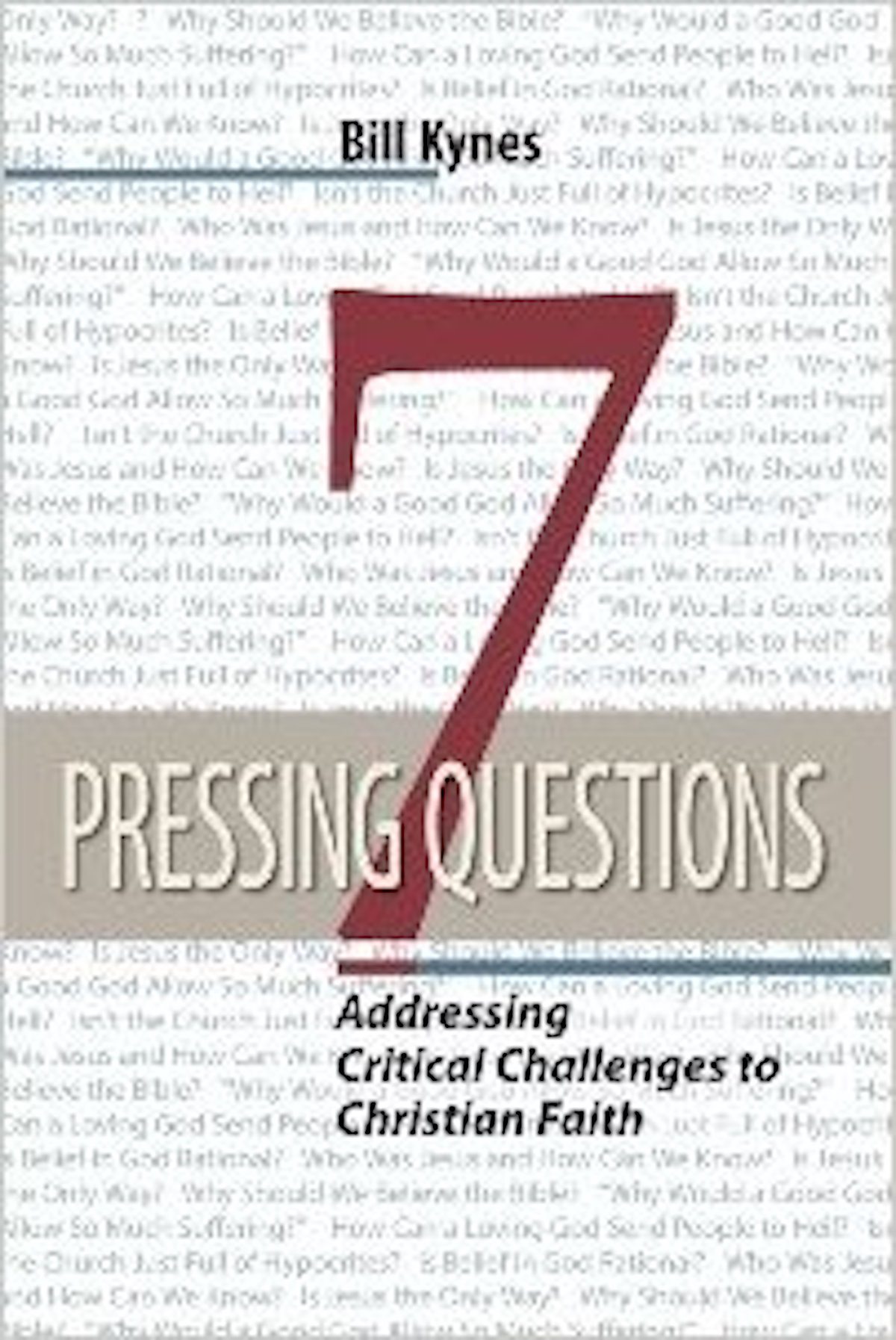Imagine the following scenario.

Seven Pressing Questions: Addressing Critical Challenges to Christian Faith
Bill Kynes
Seven Pressing Questions: Addressing Critical Challenges to Christian Faith
Bill Kynes
You’re teaching a co-ed college Bible study. The group is a diverse mix of Christians and non-Christians, and all seem to be reasonably interested in learning more from Scripture. You’re feeling good about the material and the group’s openness to the gospel. Everything is going smoothly—that is, until one of the students, a quiet, meek sophomore who has attended every session, raises her hand and asks, “I get what you’re saying, and all this Bible stuff sounds great. But how can we really know if it’s all true? How do we know Jesus is alive right now? Why should we trust the Bible more than the Book of Mormon or the Quran?”
Good News and Bad News
If the thought of that makes you shift in your seat a bit, I have both good news and bad news for you. The bad news is that, far from being mere hypotheticals, those kinds of questions are quite common, not just in college Bible studies but also in Sunday school. If you’re a pastor or a church leader who teaches Scripture regularly, odds are you’re hearing or are going to hear some of those exact questions.
I said there was good news, and there is in the form of a brief, highly readable book by Bill Kynes titled 7 Pressing Questions: Addressing Critical Challenges to Christian Faith. Kynes, TGC Council member and pastor of Cornerstone Evangelical Free Church near Washington, D.C., offers an excellent primer on seven of the most important questions that can be asked about Christianity.
Simple and Powerful
Kynes’s seven questions range from whether theism is rational (question 1), to the trustworthiness of the Bible (question 4), to why we should take the church seriously if it’s filled with sinners (question 7). The questions progress naturally from more philosophical issues to more existential ones, a fact which puts the book in an uncommon category: an apologetics work that actually reads as well from beginning to end as it does in individual chapters.
The book shines especially in question 5, “Why Would a Good God Allow So Much Suffering?” Rather than attempting a full-throated theodicy or in-depth biblical theology of suffering, Kynes provides an interactive and accessible overview of what Christians believe about the nature of God, the sinfulness of humanity, and the meaning of the suffering and resurrection of Christ. Because Kynes has already laid the groundwork for rational belief in Scripture and the deity of Jesus, his explanation of the resurrection’s meaning for human suffering is simple and powerful:
The resurrection of Jesus shows us that God will make all things right in his world, because in Jesus that result has already begun. In Jesus, the greatest evil ever perpetrated has already been reversed. Jesus has been vindicated, and his glory has been restored. If God can transform the most evil and unjust act in all of human history, the brutal crucifixion of the Son of God, then there is nothing, nothing at all, that cannot be made right. (106)
This paragraph is a good example of Kynes’s apologetic method in 7 Pressing Questions. Foregoing either strident presuppositionalism or slippery evidentialism, Kynes prefers to let the Scriptures speak for themselves and ground their trustworthiness in the self-authenticating ministry of the risen Christ (81). Again, this is where the book’s distinctiveness as an overview of specific questions (as opposed to an exhaustive theological treatment) is important. More curious readers may leave 7 Pressing Questions desiring more than they got, but at only 150 pages the book packs in value and insight bigger than its word count.
Gospel Conversation Starter
If you’re an apologetics major looking to add a cutting-edge academic work to your library, you may be tempted to dismiss 7 Pressing Questions. That would be a mistake, because no amount of philosophical or theological weightlifting can substitute for being able to articulate Christian truth in a simple way that highlights the persuasiveness of Scripture.
Don’t let the low page count or lay-level vocabulary convince you to skip Kynes’s book; it very well may create gospel conversations you didn’t know could happen.

































